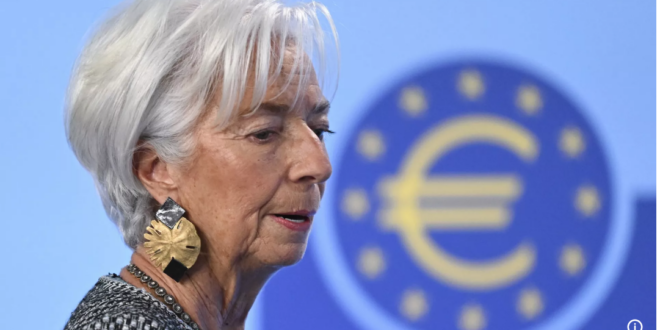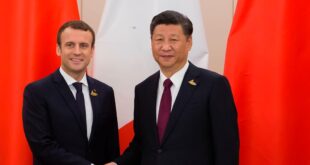Muhamad Yehia
ECB President Christine Lagarde told the European Parliament that inflation is easing and rate cuts are taking effect but warned of trade risks. She reaffirmed a cautious, data-driven approach and stressed the need for a digital euro to strengthen Europe’s financial autonomy.
European Central Bank (ECB) President Christine Lagarde has told European policymakers that inflation is easing and recent rate cuts are starting to take effect but cautioned that uncertainty remains, particularly amid trade frictions and geopolitical tensions.
“Most measures suggest that inflation is converging towards our target on a sustained basis”, Lagarde said during her plenary address before the European Parliament on Monday, noting that eurozone inflation had fallen to 2.5% in January, down from 5.5% a year earlier.
Despite the progress, she reaffirmed the ECB’s cautious approach: “We are not pre-committing to any particular rate path”, she said, warning that global trade disruptions could still disrupt the inflation trajectory.
Lagarde’s comments come after the ECB lowered interest rates by 125 basis points since June 2024, bringing the deposit facility rate to 2.75%.
She also emphasised the urgency of advancing the digital euro, arguing that a regional payment system would reduce Europe’s reliance on external providers and strengthen its financial resilience.
Fragile recovery amid global uncertainty
The eurozone economy barely expanded in 2024, with gross domestic product rising just 0.9% year-on-year.
The final quarter of the year was particularly weak, as industrial production stagnated and consumer spending remained subdued despite improving real incomes
“Manufacturing remains under pressure, but services are holding up,” Lagarde noted, offering a mixed view on the eurozone economy.
“The good news is that labour markets are resilient,” she said, pointing to rising real incomes and a solid job market as potential drivers of consumer confidence. However, “households are hesitant to spend more,” and business investment remains weak.
According to Lagarde, lower borrowing costs should gradually improve conditions, making credit more accessible for businesses and households. External demand could also provide relief, but global trade frictions pose a potential threat.
“Greater friction in global trade would make the euro area inflation outlook more uncertain”, Lagarde stated
Why the digital euro matters for Europe’s autonomy
Beyond monetary policy, Lagarde underscored the importance of strengthening Europe’s financial independence, particularly in digital payments. She noted that Europe remains overly reliant on foreign providers, leaving the region vulnerable to external economic and geopolitical shifts.
“Payments are the backbone of our economy, and Europe cannot afford to be overly dependent on external providers,” she said. The ECB is pushing ahead with plans for a digital euro, which would complement physical cash while ensuring Europe has a resilient, sovereign payment system.
Lagarde also called for progress on capital market integration, arguing that removing financial barriers could unlock investment, fuel technological progress, and support economic growth. “With the right framework, Europe can mobilise its vast savings pool to finance its own innovation and technological progress,” she said.
No rush on future rate cuts
For those hoping for clearer guidance on future rate cuts, Lagarde’s message was one of patience and flexibility.
“We will follow a data-dependent and meeting-by-meeting approach to determining the appropriate monetary policy stance,” she said, reinforcing the ECB’s commitment to carefully assessing economic conditions before making further moves.
She also indicated that the ECB is continuously refining its economic models to better navigate a rapidly changing environment.
“We are taking stock of a changed inflation environment and economic context”, she said, adding that the ECB remains focused on managing risk and uncertainty.
Closing her remarks, Lagarde left the Parliament with a clear call for European unity.
“European unity was the dream of a few. It became the hope for many. Today it is a necessity for all of us,” she said, underscoring the need for cooperation in addressing economic challenges.
 موقع وجه أفريقيا موقع وجه أفريقيا هو موقع مهتم بمتابعة التطورات في القارة الأفريقية
موقع وجه أفريقيا موقع وجه أفريقيا هو موقع مهتم بمتابعة التطورات في القارة الأفريقية



